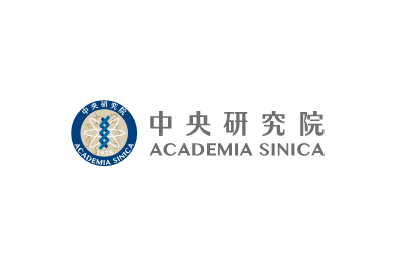- Lectures
- Institute of Ethnology
- Location
2nd Conference Room (R2420), 2F, The New Wing, Inst. of Ethnology, Academia Sinica.
- Speaker Name
Ferdinand Ottoh, Michael I. Ugwueze, Akachukwu Darlington Umeh
- State
Definitive
- Url
Africa-China Research Network in Taiwan presents: Paradiplomacies and Power Games: Perspectives between Africa and Taiwan
Africa-China Research Network in Taiwan presents:
Paradiplomacies and Power Games: Perspectives between Africa and Taiwan
A Panel Event:
December 02, 2024
14:00-16:00 (Monday)
中研院民族所 第二會議室 R2420 室
2nd Conference Room (R2420), 2F, The New Wing, Inst. of Ethnology, Academia Sinica.
Sign up here: https://forms.gle/ZDaGs7YrWjBqme3WA
Description:
How does "US-China competition over Taiwan" shape how political analysts in countries outside of that triangle define both their own countries' national interests, and their own assesments of Taiwan's own interests? Stepping outside the usual concentration of external discussion in North America and Europe, this panel brings together three visiting political scientists from academic institutions in Nigeria and South Africa studying the geopolitics of Taiwan's relations with China, their implications for African countries, and the strategic decisions and diplomatic strategies of African countries approaching the Indo-Pacific.
Speakers:
Ferdinand Ottoh (Associate Professor, Department of Political Science, University of Lagos)
Evaluation of the roles of subnational unitsʼ involvement in paradiplomacy: Nigeria and Taiwan
The increasing interest among scholars of international relations in the study of paradiplomacy is due to the fact that non-state actors are becoming more active in international affairs and possess the ability and capacity to influence how their governments formulate and implement foreign policy. This goes against the previous approach, in which the sovereign states acted as the only actors in foreign policy. This radical departure from a state-centric to a more polycentric world is due to the changing nature of international relations and the globalization phenomenon. Global cities, transnational enterprises, multinational organizations, and non-governmental organizations (NGOs) are just a few of the non-state entities that actively participate in the global arena and have contributed to the conduct of international relations. The states and sub-regional actors are part of the new global trend that is changing international relations and are searching for ways to promote cooperation, commerce, investment, and collaboration on a number of fronts. They have amalgamated politically and economically in order to protect and further their interests. The study's main concern is why Nigeria and Taiwan haven't been able to improve their relationship by using paradiplomacy. The federation of Nigeria has not pushed its constituent nations to establish and cultivate strong ties with Taiwan and other independent nations. The study contends that domestic and international law impose restrictions to international diplomacy to the sovereign states. This paper makes the case that Nigeria and Taiwan should use paradiplomacy to include their subnational units in international affairs. This is why this paper argues that paradiplomacy is the tool to launch subnational units into the global economy while simultaneously creating a unique development model based on strong ties between the government and private industry, government and government, and people-to-people. Furthermore, Taiwan's current diplomatic situation necessitates a fresh and more practical strategy that involves subnational units in international relations, particularly with a nation like Nigeria. It adopts qualitative methods with semi-structured questions sent through email and a Google survey form to academics in international relations, political science, law and history, and officials in the Ministry of Foreign Affairs in Nigeria and Taiwan, the Nigeria Institute of International Affairs, civil society activists, etc. The data collected are triangulated and validated through secondary sources. It adopts multiple theoretical inquiries of because of the nature of the study and issue under investigation.
Michael I. Ugwueze (Associate Professor, University of Nigeria, Nsukka)
Mistrust and cross-strait provocations: Implications of China’s vision 2035 hybrid strategy on Taiwan’s national interest
Since the 19th Congress of the Chinese Communist Party (CCP) in October 2020 that saw China outline its Vision 2035, there have been increased provocations, leading to escalation of tension across the Taiwan Strait. Although these latest provocations have been interpreted as President Xi Jinping’s resolve to take Taiwan by force, the broader implications of the Beijing’s hybrid strategy to Taiwan’s national interest are only beginning to gain marginal academic attention. Focusing on the increasing mistrust that spurs mutation of strategies by both sides of the Taiwan Strait, I explore how the continued cross-strait provocations by China negatively impact Taiwan’s national interests, increasing its potential risks and diminishing its economic opportunities. Although neither China nor Taiwan stands the chance of achieving their desired objectives across the Taiwan Strait using force, China’s hybrid strategy that combines soft power with grey zone warfare leaves Taiwan more vulnerable in the areas of its national security, politics and economy. This worsens Taiwan’s statehood dilemma and international standing, further exposing its susceptibility to being used as a pawn in the Indo-Pacific chess game. To strengthen Taiwan’s de facto sovereignty without undermining the “one China” principle, the study suggests trust building that prioritizes peaceful dialogue and robust para-diplomatic engagements.
Akachukwu Darlington Umeh (Assistant Professor, University of KwaZulu-Natal South Africa)
An African Perspective on the China/USA Quest for Maximum Influence and Control of Taiwan
The intricate geopolitical dance surrounding Taiwan, with China and the USA vying for influence and control, is a complex narrative that resonates far beyond East Asia. As African nations navigate their own paths in the global arena, the Taiwan situation presents a confluence of historical context, economic interests, and diplomatic strategies that demand attention. This paper delves into the multifaceted dimensions of Africa's stake in the China-USA power struggle over Taiwan, examining the implications for trade, investment, diplomacy, and sovereignty from an African perspective. By exploring these interconnected themes, we aim to shed light on how the Taiwan conflict reverberates across continents and shapes the strategic calculus of African nations in the quest for international influence.









 Home
Home

